10 Lessons from 10 Years (?!?) as a Freelance Writer
Apparently I've been making a full-time living as a writer for a whole decade? Would you like some wisdom-in-progress?
I cried when we got our first water bill in Portland.
My husband had taken a pay cut at his company to move into an outside sales rep position in Oregon. I’d quit my two restaurant jobs back in Seattle, and was relying on my meager freelance income.
I was used to living in apartments, and I’d already weathered the shock of the monthly garbage and electricity bills—which were no longer just included in our rent. (Rent which had gone up since we’d moved, too.)
I spent the day after we got that bill collecting applications from local restaurants. I really didn’t want to go back to waiting tables, but I knew I could make good money at it—and we needed money.
When I told my husband my plan, he shook his head. “Just give it a few more months,” he said. “If you can’t make it work as a writer, you can always go back to waiting tables. But give it a few months first.”
I went back to my desk. I went back to the job boards and the cold calls and the magazine pitches.
And ten years later, I never dropped off those applications.
It’s hard to believe that for the past decade, I’ve made a full-time income from writing.
I replaced my copywriter desk job salary that first year (a bit over $50k), and I’ve grown that every year since. Not by leaps and bounds, because that hasn’t been my goal. Rather, my goal has been to reduce the amount of time I spent earning that money.
2023 was an anomaly (you can read back a few posts if you want to know why), but in 2022, I worked 10-20 hours a week to earn what had taken me 40 hours as a W2 junior copywriter. That leaves me the rest of my time to spend on my fiction business and other projects, like the Author Alchemy Summit.
Of course, the past ten years hasn’t all been smooth sailing. But I’ve certainly learned a lot along the way….
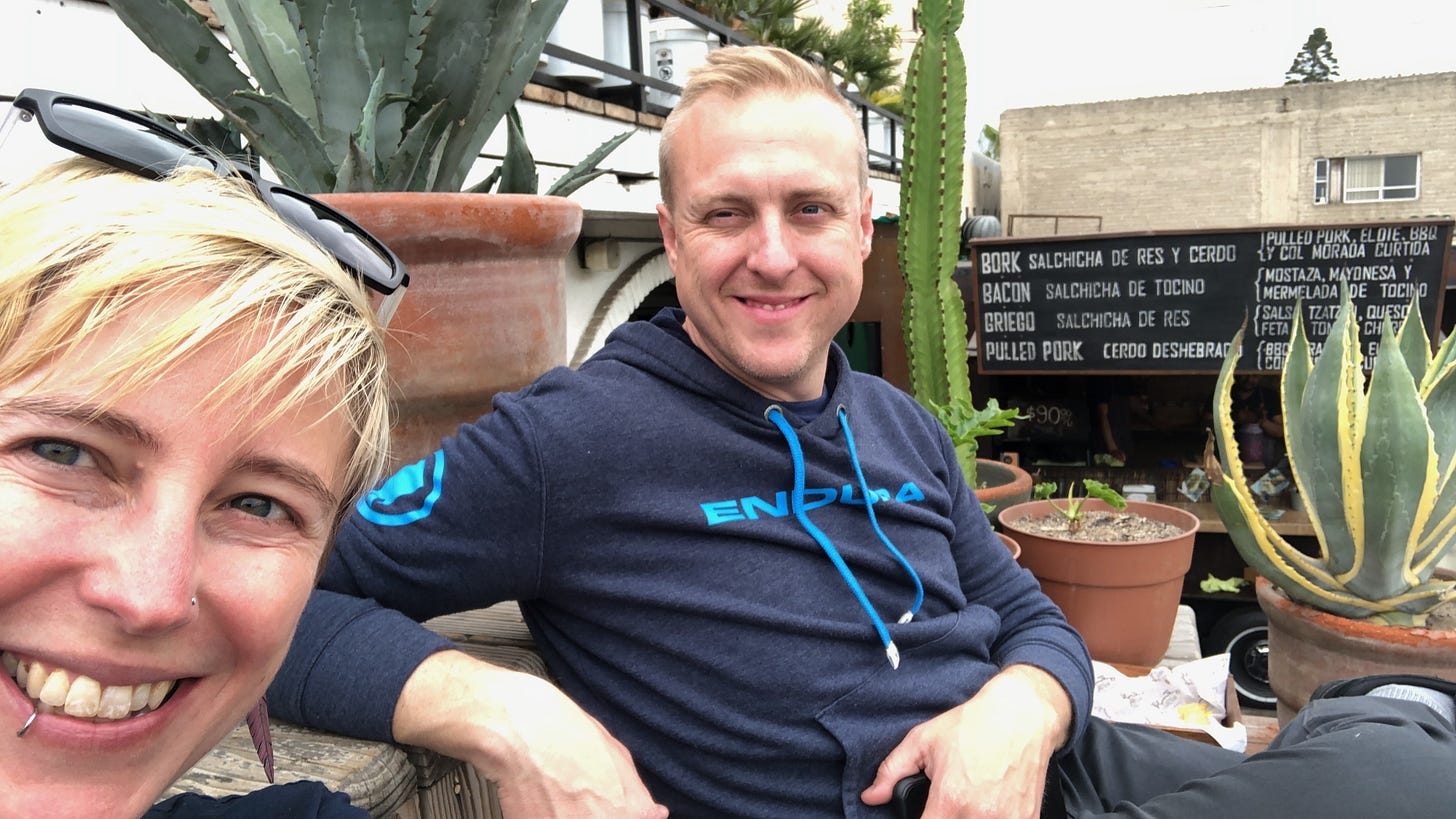
1. No one else is going to prioritize you, except for you
When I started out, I worked hard to please my clients. I wrote strong copy. I went above and beyond to meet my deadlines. I said yes—a lot.
I had a lot to prove.
I wanted to prove to those early client that they hadn’t made a mistake hiring a newbie. I wanted to prove to myself and those around me that I could make it as a freelancer.
But, as you can imagine, putting my clients’ needs first meant that my own needs were rarely getting met.
I wasn’t writing fiction. I wasn’t getting out for bike rides and hikes. I was working weekends and evenings, and I was constantly overwhelmed.
That’s the way of things, sometimes. You can’t skip the hard work if you want to get a business off the ground.
Building up a client list isn’t easy. Replacing your day job income isn’t easy. In those early days, I was building the plane of my freelance career as I was learning to fly it—and that took a LOT of extra energy I don’t have to spend today.
As years passed, I began to charge more per hour, so I didn’t have to work as many hours to get the same rate. My client list became mostly word of mouth and repeat, long-term clients, so I didn’t have to spend so much energy marketing my business. I grew more confident in my writing, so I wasn’t spending nearly as much time agonizing over every assignment.
But even as I reclaimed more time, I was still constantly frazzled and overwhelmed.
It took me much longer to learn the real reason I was stressed out.
It wasn’t the hours I was working. It was the fact that no one was prioritizing what I needed out of my business—least of all me.
For the first EIGHT YEARS of freelancing, I worked through every vacation. Sometimes I could bust my ass to punch a one-week hole in my schedule, but I normally had at least a client deadline or two that I needed to hit, as well as trying to meet my own deadlines for my fiction.
Then, two years ago, I was in talks with a new ghostwriting client. We connected about a month before I was about to leave for a 3-week vacation—the longest “real” vacation I’d taken since I started freelancing.
I went into full-blown panic mode about the project.
“Tell him you can’t start until we get back,” my husband said with a shrug, like it was that easy. Like I was in charge of my clients’ schedules.
This was an incredibly important project for me, both in terms of income that year, and in my pivot to ghostwriting books. I was terrified to let the client walk away, but I agreed to at least try to push back the timeline.
I was sick to my stomach when we had our call.
I debated pretending I was busy with other work, because that seemed like a more legitimate reason to wait—but I finally got up the courage to tell him the truth. We couldn’t get started until six weeks from now, because I was taking a frivolous vacation.
I waited with a sinking heart for his response.
“Great,” he said, like it was no big deal. “Sounds good. Can’t wait to hear about your trip!”
And he sent over the deposit that day.
Since that moment, I’ve realized two things. A) No one is going to prioritize me except for me, and B) nobody’s in so much of a hurry that you can’t take a few weeks off.
In the past two years, I’ve made some big changes. I take real vacations, and I tell clients about them. I don’t take calls before 11am, because that’s when I do my best writing. And I build bigger buffers into my project timelines to account for the inevitable delays, or the times when I just need to take a day off and get my head back on straight.
In other words? Now I prioritize me—and my business hasn’t crumbled around me.
This dovetails nicely into my next lesson:
2. Don’t be a shitty boss
We’ve probably all had bosses we loved and bosses we hated. I’ve worked for some nitpicky, passive-aggressive assholes who left me with physiological battle scars that sent me into fight-or-flight mode for years whenever I thought about that job. And I’ve worked for some truly lovely people who I knew had my back no matter what. (Heyy, Rob Bean from the Seattle Repertory Theater!)
When you work for yourself, you get to choose which boss to be.
Are you going to be a nitpicky asshole who never gives your team an “atta boy”—let alone a break? Or are you going to be one of those rad bosses who has your team’s back?
I’m my own harshest critic and my own toughest taskmaster, and it’s taken me years to realize that’s not the benefit I thought it was.
Yes, I need to expect a certain amount of discipline and hard work ethic out of myself. But I also needed to learn to extend myself grace.
Getting shot in the eye has been an extremely powerful lesson in self-compassion, but I was making strides towards being a better boss even before last summer.
I’m not just talking about cutting yourself some slack.
I’m talking about perks.
Some things, like vacation pay, are fairly standard perks for employees in the corporate world. About five years ago, I was complaining to my husband that my asshole boss didn’t give me paid vacation like his did.
“Sounds like something you need to talk to your boss about,” he said.
So I did. I put on my boss hat, called my bank, and opened a new savings account labeled “Vacation Fund.” I started putting 10% of every check I received into that account, and used it as a buffer to pay myself when I took time away from paying client work.

Wanna be a rad boss?
Take a lesson from Silicon Valley startups. Those cats get nap rooms and nerf gun fights and gym memberships and espresso machines. I took a page from a friend’s company, and bought myself a punch card for the Everett House so I can clear my head with a relaxing soak on strategy days.
You don’t need to go overboard. Start by thinking about the basics that you’d hope for if you took a “real” job: vacation pay, healthcare, flexible hours, a nap room.
Then take a vow to be one of the cool bosses.
3. You are where you work
Speaking of shitty bosses, is your boss making you sit on a kitchen chair with one short leg, on a desk that doubles as a cutting board, on a screen that’s so small you have to curl your spine into a question mark and squint to see it?
Fire that boss and find one who cares about your physical health and career longevity.
Look, I get it. I worked from my kitchen table when I first started, followed by a tiny desk in our bedroom, sitting on an office chair I found by a dumpster.
Good equipment is expensive.
Space is expensive.
But as you start growing your freelance business, investing in your equipment is absolutely critical if you want to keep doing this for the long term.
You need:
A reliable computer: Buying a newer laptop that won’t randomly die on you right before a big deadline will add years of saved stress back to your life.
A really good chair: Get rid of the dumpster office chair, and spend a couple hundred dollars on a solid ergonomic office or gaming chair. I promise the amount of time and money you’ll save not doing physical therapy for your low back will be well worth it. (I love my gaming chair from GT Racing—it’s a good size for a shorter person, and super comfy.)
A monitor at the right height: Protect your back, neck, shoulders, and eyesight for the long term. Monitors are pretty cheap, and hugely helpful.
An ergonomic keyboard: I’ve struggled with wrist pain my entire adult life. In high school, I taught myself to type in Dvorak, which helped alleviate it somewhat. But I still spent the following decades in and out of physical therapy. Finally, in 2020, I spent $200 on a split ergonomic keyboard (the Kinesis Gaming Freestyle Edge—it has rainbow LEDs!!). I haven’t had a lick of wrist pain since.
Now that I’ve taken over our guest room for my office (I built a Murphy bed for guests), my setup also includes a sit-stand desk and portable under-desk treadmill, so I can walk and type.
Over the years, I’ve realized what a huge part of my workflow (and mental/physical health) my workspace is. As I type this, I’m waiting on a replacement part to fix my sit-stand desk, which means I can’t used my treadmill. And it’s making me sooo crazy.
You don’t need a massive, expensive setup. But you do need to figure out how to tweak your workspace so that it’s comfortable and sustainable.
What small changes can you make today to help you enjoy sitting down at (or sidling up to) your computer for work?
4. Get control of your money flow
Freelancing is a volatile business. I’ve had months where I billed over $12k in work, followed by months I’ve billed $0.
If you want to make a living as a freelancer, you need to be okay with that level of volatility—but there are ways to reduce the impact your wildly fluctuating business finances have on your personal budget (and get more peace of mind).
First off, read Profit First by Mike Michalowicz. It’s a super interesting and entertaining book about business finances (I’m serious!), and it’ll give you a much more in-depth look at what I’m about to tell you.
But basically, when I first started out, I opened a separate business checking account for my business. Every time I deposited a check from a client, I put a third into a separate savings account for taxes. Then, every month, I paid myself a salary out of my business checking account.
(You have a separate business checking account, right? RIGHT? If not, go on and open one. I’ll wait.)
The salary started small, because that was all I could reliably afford. But as my income grew (and my buffer grew), I started giving myself raises.
What this does is reduce your money-related stresses by giving you a clear picture of what you (the business) can afford to pay yourself (the employee) without having to rely on credit.
It also gives you a clear picture of how badly you need to hustle for your next client. When I have a 3-4 month buffer of my monthly salary in my business account, I know that I can spend time working on my fiction business without stressing about client work coming in. When I have a 1-2 month buffer, I know I need to start poking past clients and/or beating the bushes for new ones.
I’ve evolved my system over the years to add different savings accounts for things like publishing expenses, the aforementioned vacation fund, and a profit account as recommended by Mike Michalowicz. Each check I receive gets portioned out according to my version of Mike’s Profit First system, so I always know what’s available to spend.
As well as putting a buffer between your volatile income and your personal finances, this system also helps you get a control on your spending without having to be a stickler about budgeting.
(If you’re a stickler about budgeting, more power to you. I am not, and do not care to be.)
Simply put, if there’s money built up in my Education bucket, I can afford to go to a conference. If my Monthly Expenses account is increasingly growing, I can afford to get a new software subscription, or buy a piece of office equipment.
Of course, the cycle of money flow isn’t the only thing you need to get a handle on…
5. Honor your own cycles
Life has seasons. Your weeks have rhythms. Even your days have their own flavor of ebb and flow—and they will be different than mine.
That’s one of the reasons productivity and writing advice can be a double-edged sword. On the one hand, it’s helpful to hear an example of how someone else structures their day. On the other hand, while it might be perfectly productive for some early birds to get up at 5am and write first thing, that might be completely counter-productive for you (me).
Understanding my own productive rhythms was what first drove me to start freelancing.
I knew that I worked best first thing in the morning—just not 5am first thing. I needed good sleep and a clear, fresh brain if I was going to tap into an imaginary story world and really get into the flow.
Sure, I could force myself to write after work with a tired brain, or on my lunch breaks. But working that way drained me, instead of enlivening me.
Eventually I realized the only way I was going to reclaim my most productive hours was to set my own schedule by quitting the “real” job to become a freelancer.
Obviously, I wasn’t great at setting my own schedule before I’d learned lesson one—that no one was going to prioritize myself except for me. I kept taking calls at 9am, losing myself in emails first thing, bumping my own work to take on client projects….
But getting into a productive groove hasn’t just been about learning (and protecting) my daily energy cycles. I also had to learn to honor my larger energy cycles.
I work best when I can sink deeply into a project, and not look up for days or weeks until I’ve exhausted it.
But in the early days, most of my income came from recurring projects like blog posts and website copy. I was on retainer with a half-dozen clients at any given time, with regular deliverables each day of the week.
It was nice, because I always knew how much was coming in every month. But it also tied me to a pace that wasn’t sustainable for my best way of work.
I was always bouncing between topics—educational technology, forklifts, retail POS systems, luxury vacation rentals, house painting, government GIS systems, digital asset management….
Each week I would write six, eight, ten blog posts for wildly different clients. This was one of the reasons it was so hard to take time off in those early days. I had to shove deadlines to either side of a vacation, working double time before and after in order to get everything done.
(Which kind of made taking a vacation more trouble than it was worth.)
But more importantly, It was frying my brain because I never got a chance to truly sink into work the way I prefer to.
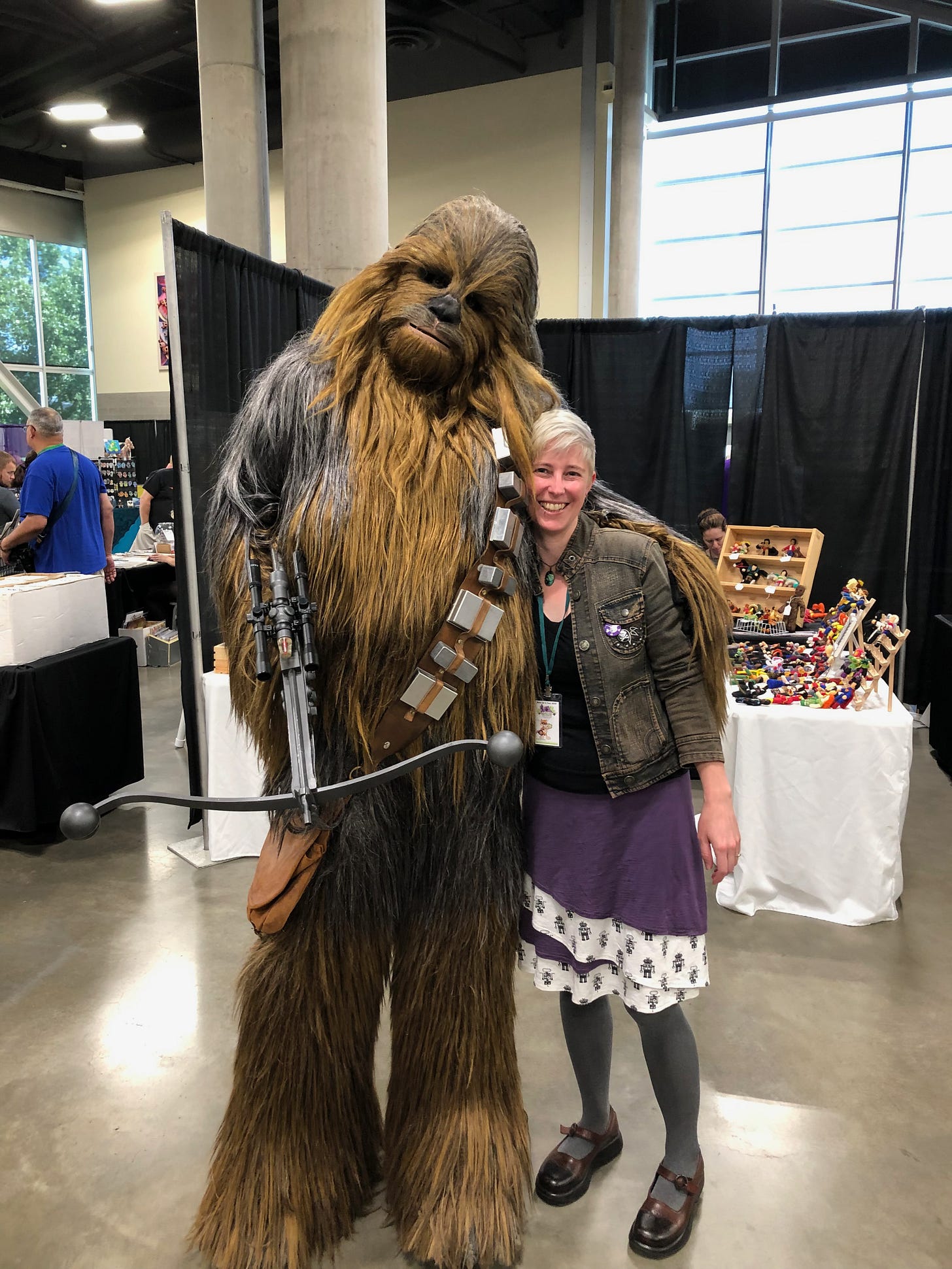
Eventually I started taking on big projects with longer deadlines and bigger payouts, but they were much more inconsistent. Fortunately, taking on those bigger projects freed up more time to write fiction, which started providing a bit of recurring revenue to smooth through the gaps.
Ultimately, I’ve learned that the pace and scope of book-sized projects is my ideal way to work—both for my own projects and for client work. That’s one of the main reasons I pivoted into book ghostwriting.
The way you work will never be the same as the way somebody else works. Your strengths are not my strengths. Some projects will drain you, some will give you life. And you won’t know any of those things until you start testing things out and seeing what does work.
6. Follow the money, but don’t forget your passions
I just listed out a dozen super random topics that I’ve written about over the years. You could also add marketing technology, sales tactics, real estate, 5G networks, cybersecurity, and scheduling automation to that list.
Am I passionate about any of those topics?
Absolutely not.
But I really enjoyed working with (most of) the companies I did, because they were trying to solve a legit problem that was keeping their target customers from succeeding.
The software-as-a-service (SaaS) companies I’ve written for are trying to help small business owners and entrepreneurs grow their businesses and support their families. The painting service company and real estate companies are trying to help home owners live in a place they love. The edtech companies and schools are trying to help at risk students succeed (probably my favorite mission, since I come from a family of educators).
When I started looking for a freelance niche, I began with hobbies I enjoyed writing about: travel, bikes, beer, crafting.
I quickly learned that those things are fun to write about. Which means everyone wants to do it. Which means companies don’t have to pay a damn thing to get decent content.
Nobody wants to write about digital asset management, on the other hand! Which means DAM companies will pay handsomely for someone who’s willing to learn what the hell a DAM is and explain the benefits to their target customers.
So I followed the money into business-to-business (B2B) software-as-a-service (SaaS), and carved out a lucrative niche there. But I quickly learned that I couldn’t just follow the money and be happy.
Some projects were way, waaay more interesting than others. And as I thought about it, I started to identify a common thread.
It’s the point I made above: the companies I enjoyed working with most were passionate about solving problems for their customers, and their customers were primarily small businesses and entrepreneurs.
I’d found my passion and the money.
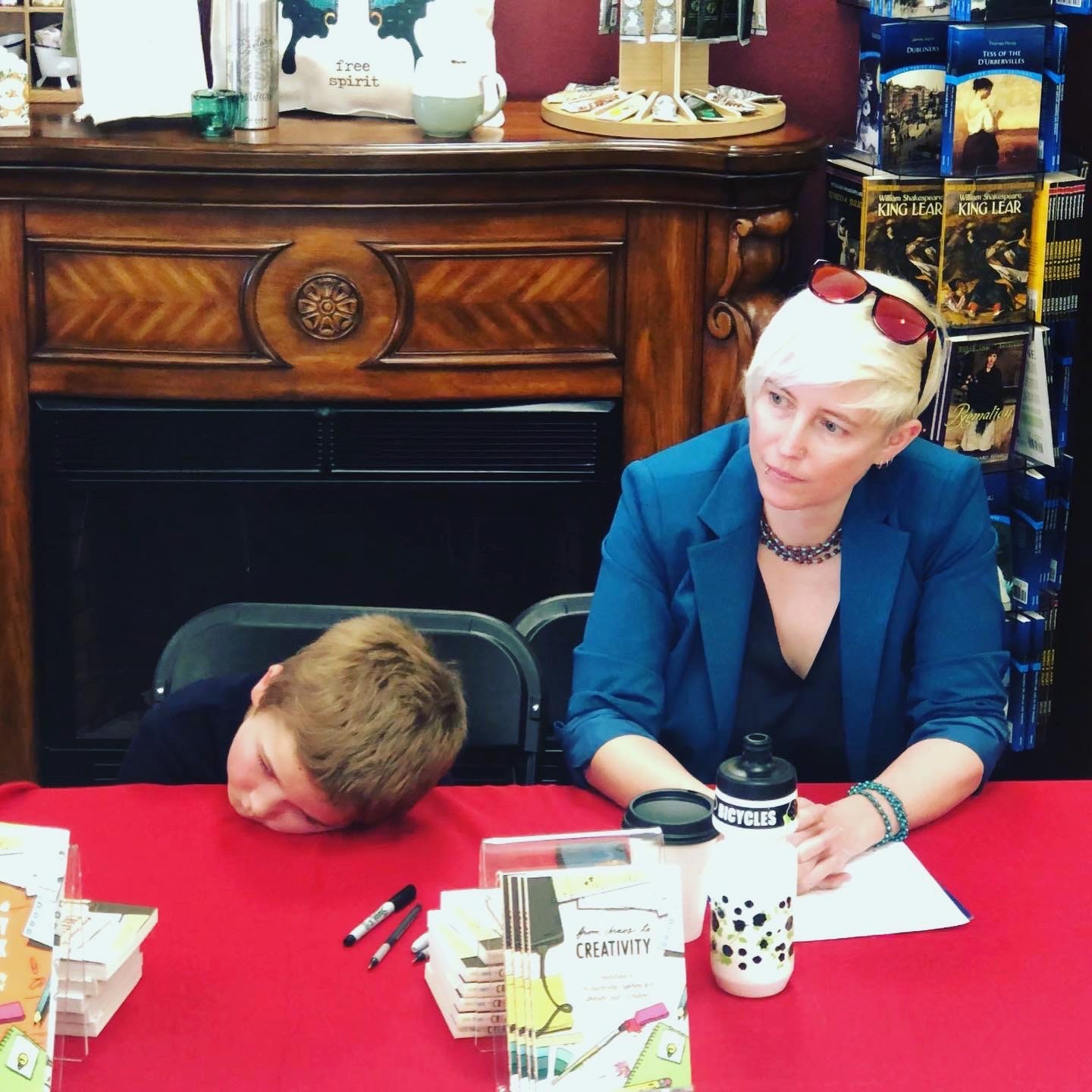
I love writing for an audience of small business owners and entrepreneurs. I love writing content that helps them run their businesses better, grow their income, and support their employees and families more fully.
(That’s what this post is, too. If you’re a freelancer, you’re a small business owner.)
I couldn’t have cared less about the intricacies of most of my clients’ products. But I care an awful lot about folks who are growing their own businesses.
And that passion gave me the fuel to find a fascination with even the most on-the-surface boring topics.
7. It’s all about who you know
Your relationships are one of the biggest things that will grow (and sustain) your freelance business.
That’s not to say that you have to have deep family connections or have gone to some prestigious school—although I’m sure that helps.
I wouldn’t know. I grew up on a farm in central Washington State.
But I can honestly say the effort I’ve put into building my network is the investment I’ve made with the most fruitful ROI.
Connect with clients and potential clients.
When you do good work, they will come back to you. They will give you referrals. They will take jobs at other companies and bring you along with them.
Connect with other professionals in business masterminds.
They won’t hire you, but they’ll pass your name to someone who will. They’ll boost your social media posts, and tag you in potential jobs on LinkedIn. They’ll give you book recommendations and advice from their own industries that applies in weird-yet-valuable ways to yours. They’ll root for you.
Connect with other freelancers.
They will lift you up. They will support you. They will give you work. They will be there to take clients that aren’t a good fit for you. They will pass your name along, they will reach out to you to see how you’re doing, they will offer to come over and ship books for you when you’ve been shot in the eye.

I know some people get nervous about making friends with other freelancers, but there’s no need to—especially as you start to find your niche.
When I was primarily doing content marketing for B2B SaaS companies, I knew a half-dozen other freelancers who had the same general niche—but because of our specialties, none of us directly competed for the same jobs.
Even the one guy who specialized in cybersecurity companies (like I was doing at the time) focused on email marketing and website copy, while I focused on blogging. We passed each other potential clients on multiple occasions.
Where do you find all these people to connect with?
Networking events. Specialized online forums. Local meetup groups. Virtual masterminds. Paid communities. Coworking spaces. Social media hashtag chats. LinkedIn groups. Emailing people who seem like they’d be friendly to ask if they’ll have a virtual coffee.
(That’s me. I like having virtual coffees with other freelancers.)
By the way, I’m planning a “networking for introverts” post soon that will have more info on how to hunt down contacts and add them to your networking trophy wall meet people and become professional friends with them.
So watch this space.
8. Pivoting isn’t failure—it’s part of the game
I know it sounds like I’ve had a pretty smooth journey from those first shaky baby freelance steps to today, but that’s not the case.
Like any business owner, I tried plenty of things that didn’t work.
It’s okay to pivot. Just because you’ve always done things one way doesn’t mean you can’t do it a different way. Just because you’ve said yes to something doesn’t mean you can’t cut your losses and say no when you realize you need to go a different direction.
But, at the same time, know that success often takes longer than you hope it will. Don’t be afraid to commit to something that doesn’t feel like it’s working now, because it might just not be working yet.
Sometimes even the most seasoned business person doesn’t know the difference. But I promise the longer you work this gig—and the more calculated risks you take—the better judge you will be of when to keep reeling in line and when to cut bait.
When you go into your freelance business (or any business) with the mindset that pivoting is part of the game, it takes an immense amount of pressure off you to get it “right” right off the bat.
Here’s an example.
A common theme I hear from new freelance writers is that they don’t know what niche to pick. Many of them are actually paralyzed by this—they’re so worried about getting pigeonholed into the “wrong” type of writing that they don’t even get started.
“What if I become X kind of freelance writer and I don’t like it?” they ask. “What will I do then?”
I remind them that they’re currently no kind of freelance writer, and that they’ll never know if it will work until they try.
And that if you take a job you don’t like, you can always find a different job and drop the first client.
You have the power—you’re the freelancer!
But seriously. Until you get going and get that first client, you straight up don’t have a niche. You only have dreams and ambitions.
You can’t pivot until you start taking steps.
I just told you that I started writing about beer and travel and making little to zero dollars. I didn’t then start ghostwriting business books. I pivoted, then pivoted again. And then a dozen more times, until I ended up with the niche I have today.
Don’t put so much pressure on yourself to succeed at everything you do. Absolutely no one succeeds at everything.
As Thomas Edison probably said, "I have not failed. I've just found 10,000 ways that won't work.”
I prefer to think of pivoted projects and marketing activities not as “failures,” but as seeds. Which leads us to lesson 9:
9. The seeds you plant will return in mysterious ways
In the first year of my freelance business, I committed myself to overcoming my terror of reaching out to people in order to drum up business.
I cold called every marketing agency in Portland. I sent cold emails to the marketing directors of dozens of companies. I attended networking events where I handed out business cards I’d made on my home printer, and followed up meticulously with LinkedIn requests and “Nice to meet you” emails.
Mostly, I got crickets.
No one returned my cold calls. Few people returned my cold emails. Most of the in-person promises to meet up and grab coffee or talk about potential jobs fell through.
But a couple of these connection attempts landed me work. And, eventually, something weird started to happen.
One day I got a job offer via email from someone whose name I didn’t recognize, from a company I’d never heard of. When I asked her how she got my email, she said a coworker of hers had met me at a networking event the year before, when he worked for a different company. He’d kept my home-printed business card when he changed jobs.
A few months later, someone I’d met at a job-seekers event and had coffee with a couple of times became the marketing director of an ad agency. She called me up to ask if I wanted to work for them, and they turned into a years-long cornerstone client.
One of my favorite long-term clients (who is now a good friend) found me because someone I interviewed for an article on sales tactics shared the article on LinkedIn, and he saw my byline and reached out to see if we could work together.
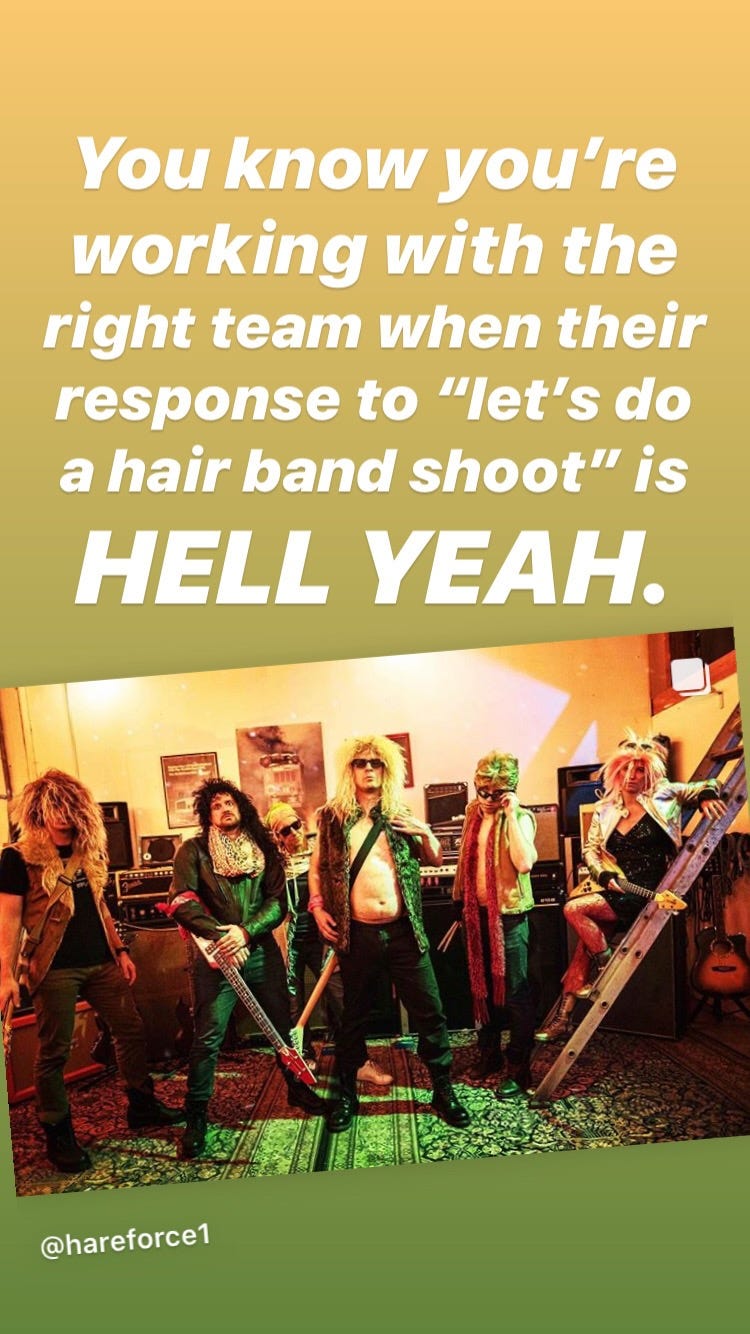
Every byline you produce, every contact you make, every cold email you send—if they’re done well—is a seed that might grow to bear mysterious and beautiful fruit.
So don’t be discouraged when you hear crickets. Don’t be discouraged when you seem to be striking out. Just keep pivoting your approach and planting those seeds.
And whether you’re riding high on the gig or feeling like you’re shouting into the void, remember…
10. Your work is not your life
You are, I imagine, a multi-faceted, multi-hyphenated, multi-sparkly rhinestone of a human being. You have layers like an onion. You have as many sides as a d20—or more!
And only one of those facets, layers, and/or sides is your work.
As a happily child-free and dog-free person who mostly really enjoys her work, I’m notorious for never clocking out of my day job. Especially since my day job is writing, and my main hobby is writing.
But your work isn’t your life. It can’t be your life, not if you want to make it to the decade mark as a freelancer (or more! Here’s to a decade more!).
When you work for yourself, it’s extremely easy to check your email after hours and work on the weekends. And sometimes you have to, that’s just how it goes. But believe me, the more you make it a practice to have a closing ritual at the end of your day and set boundaries around your work, the healthier your brain will be.
Teach yourself to step away. Know that how you shut down your day matters.
For years, I worked out of our bedroom. When that arrangement first started, I was nervous because I didn’t want the last thing I saw to be my laptop and messy desk. My solution was to buy myself a lovely desk from World Market with a lid that flipped down.
Each day, at the end of my day, I could clear up my desk, tuck my computer and papers under the lid, close it, and set a nice plant on top so it was hard to re-open for a casual email check.
It was more work than simply walking away, but it was also a closing ritual that let me know it was time to go do something else.
Now I have an office door that I can shut, and a half-dozen apps on my phone that (attempt to) stop me from checking my email when I’m not in front of my computer.
Let’s be clear. When I call this lesson 10, it’s not because I’ve learned how to do it. It’s just that I’ve learned it’s important. Believe me. It’s still a practice to extricate my life from my work.
I’ve developed a lot of tools to help me with this, most of which I wrote about in From Chaos to Creativity. But the tools, it turns out, have been less important than the practice that goes into using them.
Because each one of these things I’ve rambled on about today is a practice.
Prioritizing your own needs.
Being a better boss.
Setting up a healthy work space.
Getting with the flow of your finances — and your energy rhythms.
Finding your niche and pivoting towards what makes you happy and successful.
Building your network.
Planting seeds.
And clocking out.
Speaking of—this post that was supposed to take me a couple hours has sprawled into almost 5500 words and most of my day, so I’m gonna go wrap up a few things and take a walk.
High fives to you, wherever you are on your journey! I’m excited to take on the next ten years—and I hope to keep hanging out with you along the way.





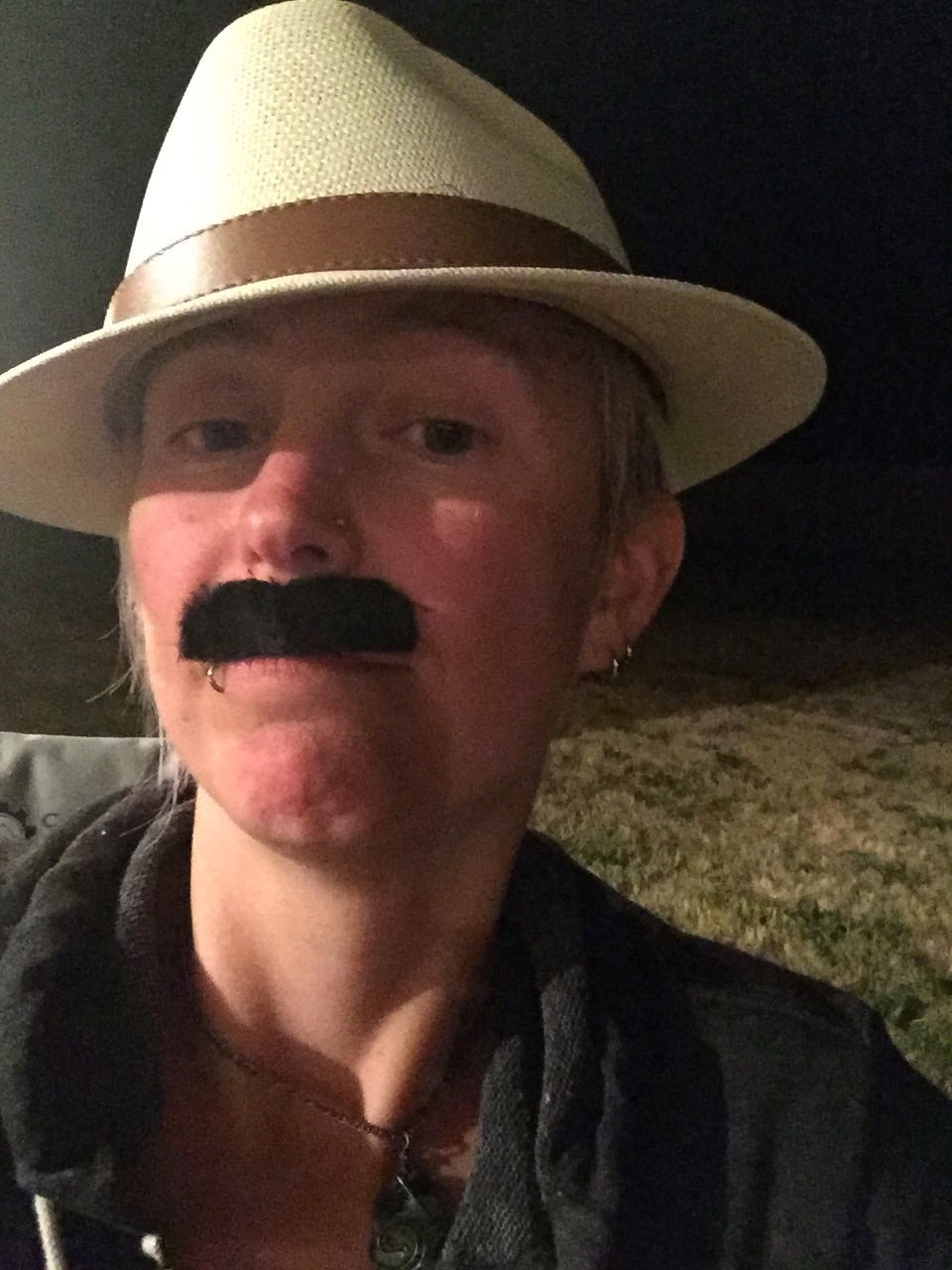
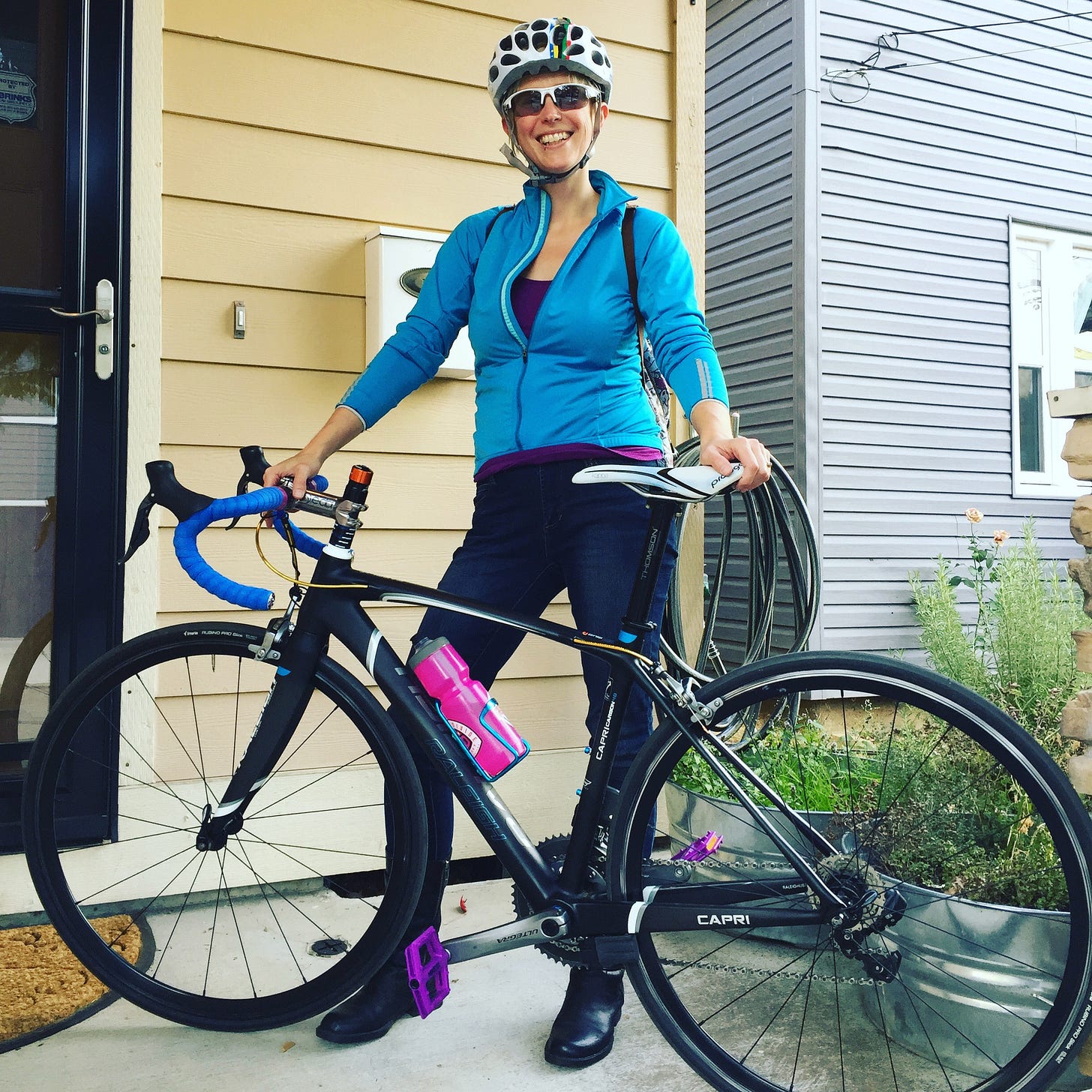
Wow. I feel like I am looking in the proverbial mirror reading this! Cheers to 10.
Love the idea of thinking of yourself as a boss. It makes sense, of course. But do we do it? By we I mean me. Do I do it? No. Lately, I've been a great boss. There have been years, though, where I might have quit had it not been ME doing the judging and pushing.
Now, whenever I'm being rude to myself, I'll think about that. After all, I pride myself on being able to be a good leader, boss, manager, etc. If I can be kind and empathetic to others, why not myself? It really does change so much—including thoughts on money and time and the grind.